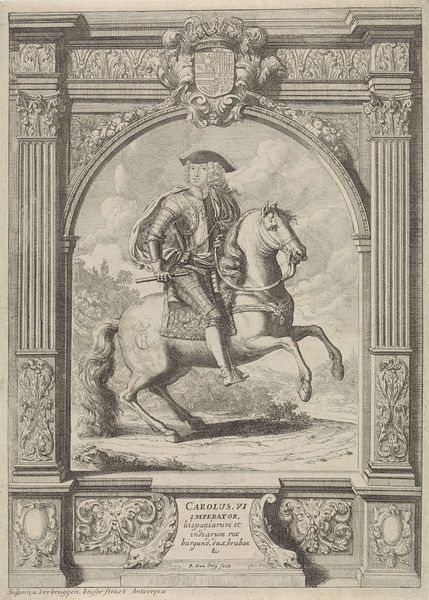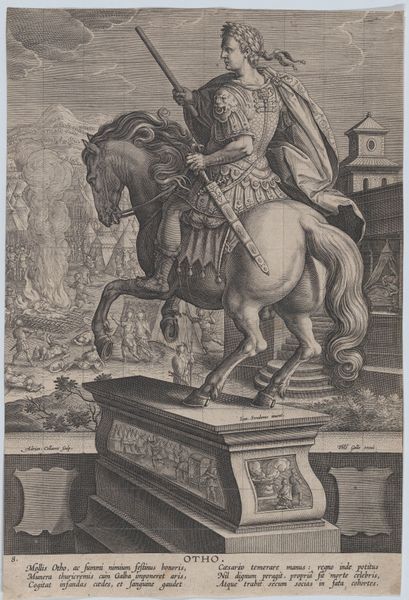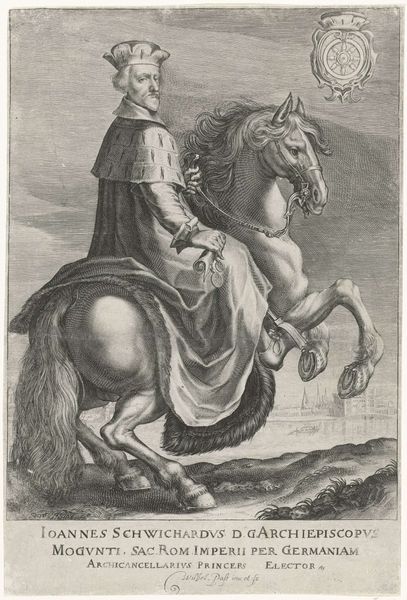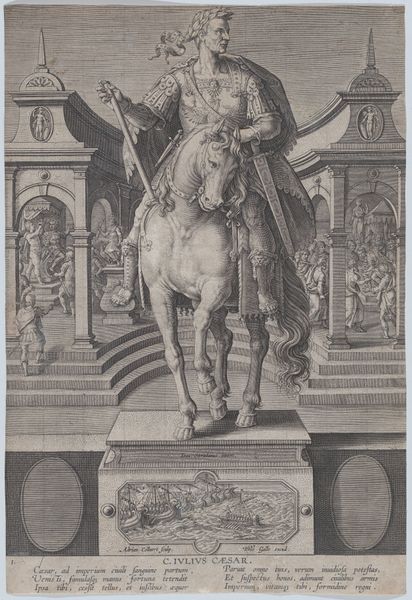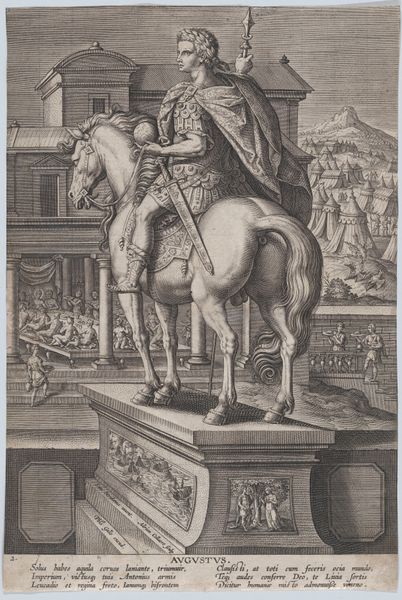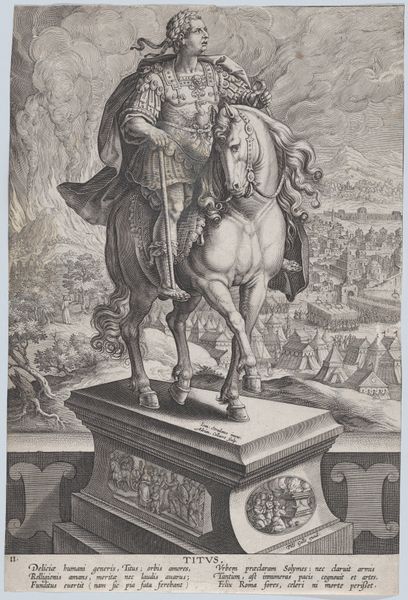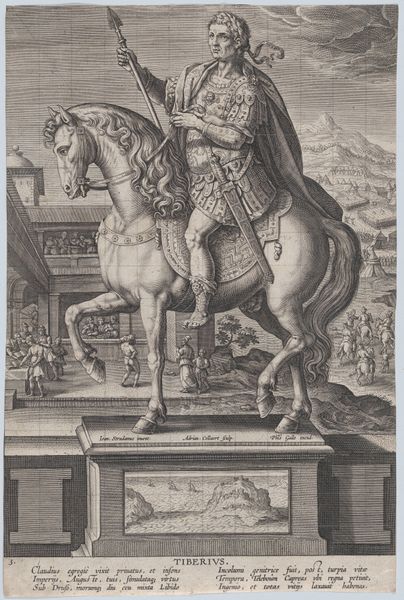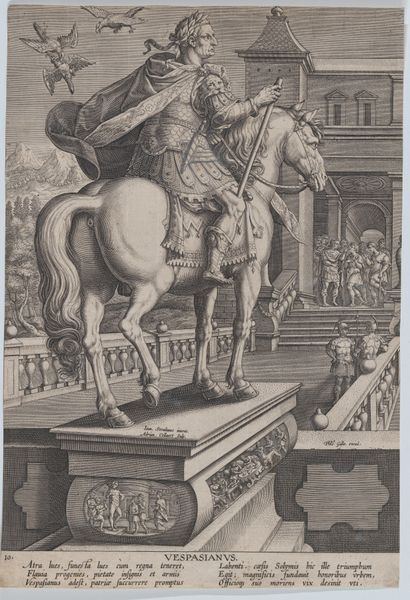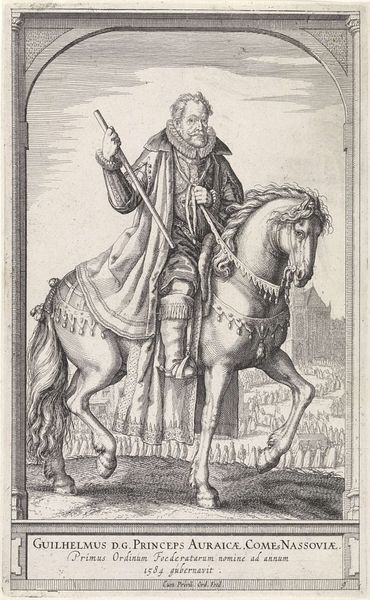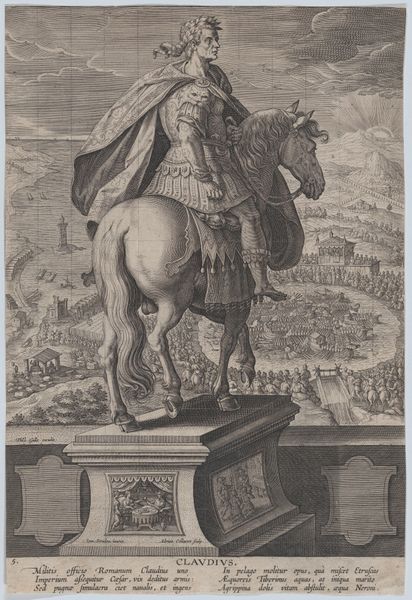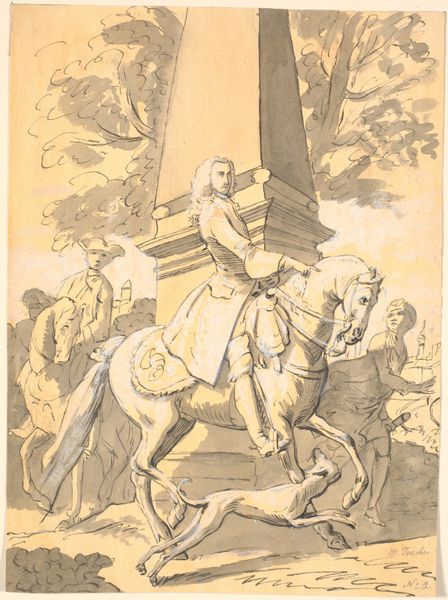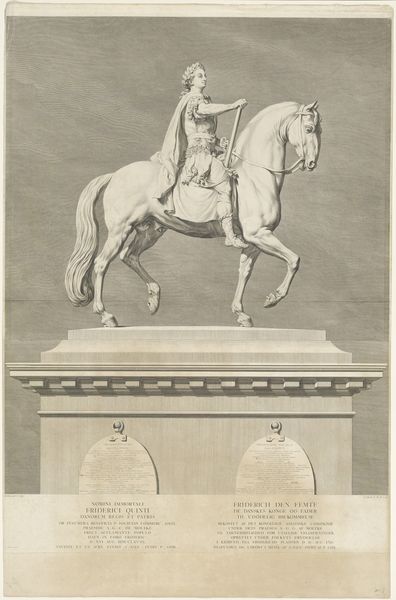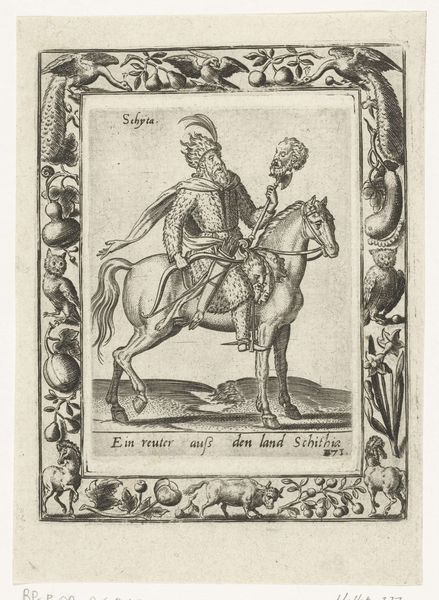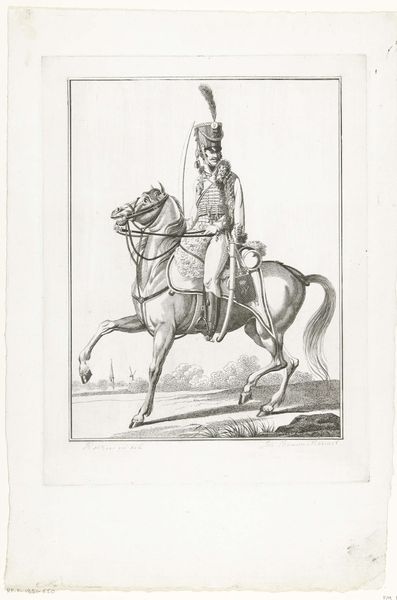
Ruiterportret van Filips IV, koning van Spanje, onder triomfboog 1628 - 1670
0:00
0:00
print, engraving
#
portrait
#
baroque
# print
#
horse
#
history-painting
#
academic-art
#
engraving
Dimensions: height 497 mm, width 320 mm
Copyright: Rijks Museum: Open Domain
This is a print of Philip IV, King of Spain, on horseback under a triumphal arch, made by Pieter de Jode II. The image presents Philip as a powerful, divinely appointed ruler, embodying the political and social order of 17th-century Spain and its territories. Prints like this one played a crucial role in shaping public perception of monarchs. Produced in the Spanish Netherlands, now Belgium, this image reflects the complex power dynamics within the Habsburg empire. The triumphal arch is adorned with lions, symbols of strength and nobility, reinforcing the King's authority. Latin and French inscriptions further emphasize his dominion and the peace he brings to his people. To fully understand this print, a historian would need to research the political context of Philip IV's reign and the role of the Habsburgs in Europe. Examining period sources such as royal decrees, diplomatic correspondence, and other prints can shed light on how images like this one functioned as tools of statecraft and propaganda. By studying these social and institutional contexts, we can better appreciate the layers of meaning embedded within the artwork.
Comments
No comments
Be the first to comment and join the conversation on the ultimate creative platform.
